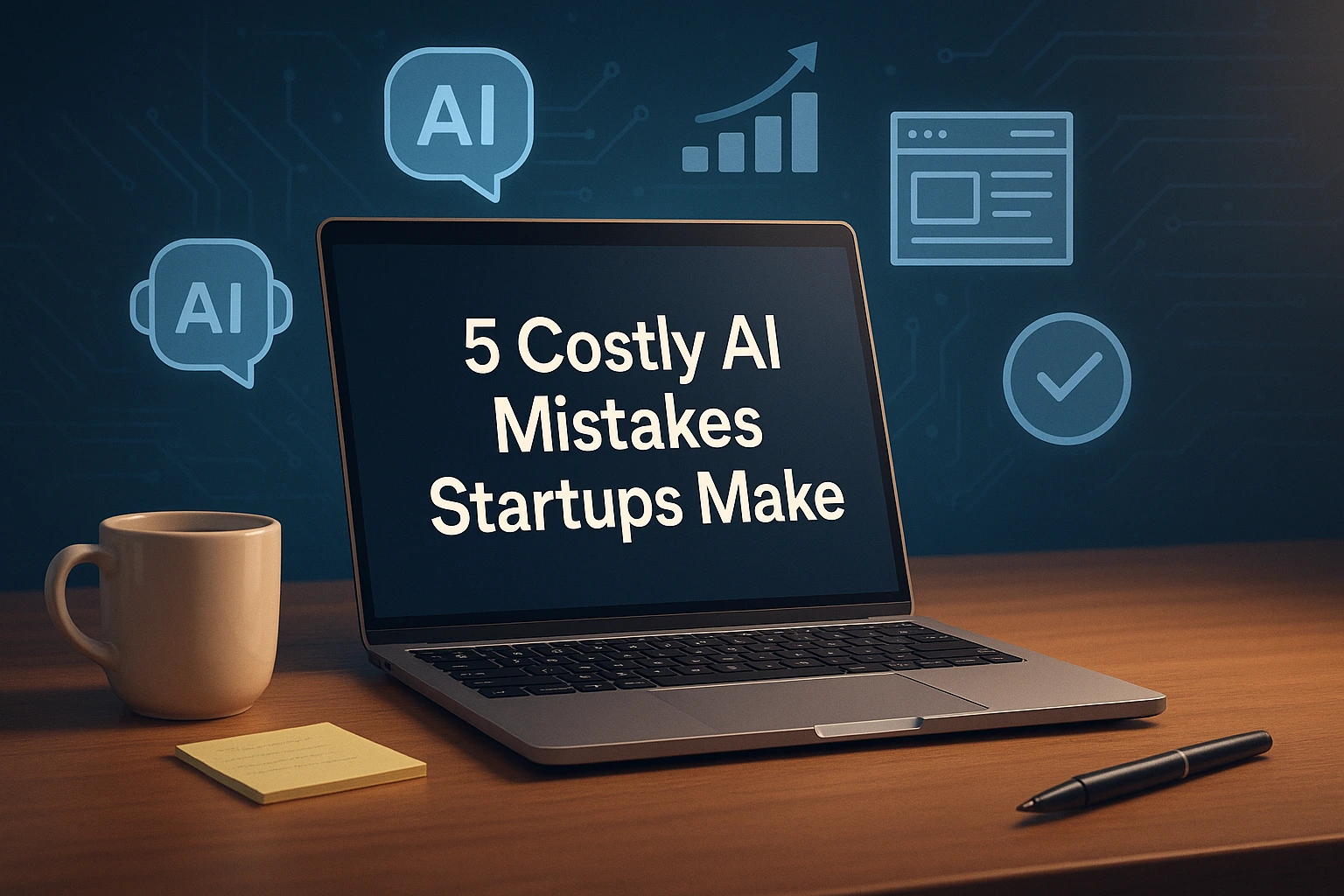AI is everywhere right now—especially in marketing. Startups are using it to write blogs, design websites, analyze SEO, and even reply to customer queries.
And while that’s great, here’s the catch: just because you use AI doesn’t mean your marketing is instantly better. Such tools are only as good as the strategy and creativity behind them.
At Digital Monk Marketing, we’ve audited dozens of startup websites over the past few months, and we’ve spotted some common AI-related mistakes. These aren’t small hiccups, as they can cost businesses traffic, credibility, and even sales.
Let’s break them down.
1. AI-Generated Content That Sounds… Like AI
Sometimes we read something and instantly figure out that it was written by a bot. The reason is that AI-written text that’s left unedited often feels robotic, overly formal, or generic. Even if it’s not traceable to the naked eye, there are plenty of AI detector tools which can identify machine-generated content to some extent.
We came across a startup’s blog the other day, and it read like a high school essay copied straight from Wikipedia. Informative? Maybe. Engaging? Not at all.
What’s the Fix: Don’t just copy-paste what AI spits out. Add you into it—your brand voice, your personality, little stories or examples that actually connect with people. Think of AI as giving you a rough draft, and your job is to bring it to life so it doesn’t sound like it was written by a robot.
2. Using AI for SEO—Without Strategy
We’ve talked to a bunch of startup founders, and a lot of them admitted they just tell AI to “write some SEO-friendly articles” and then hit publish. Problem? Such content is either crammed with awkward keywords or sprinkled with ones that make zero sense. Google hates that kind of content, and so do your readers. They click in, realize it feels forced or irrelevant, and bounce right out. Over time, that doesn’t just hurt your rankings, it makes your whole website look less credible.
What’s the Fix: You can take AI’s help with keyword suggestions, but proper SEO needs research and planning. Pair AI with actual market data and search intent insights.
3. AI Chatbots That Can’t Handle Real Questions
Sure, AI chatbots look cool on your site. But if they can’t answer beyond “Please check our FAQ page,” they frustrate users more than help them.
In our survey, we found one tech startup that lost a lead simply because their bot couldn’t answer a question related to international delivery.
What’s the Fix: Train your chatbot with real customer data. Give it a balance of automated replies and quick human takeover options. You can’t rely completely on machines.
4. Generic AI-Designed Websites
AI website builders are getting popular these days and many startups use them to save time. These websites may look fine but feel lifeless. They lack clear CTAs, storytelling, and no emotional connection that your brand requires.
Think of it like a showroom with perfectly arranged furniture but no one greeting you at the door.
What’s the Fix: When designing a website, use AI to handle repetitive tasks such as layout ideas, image suggestions, etc. Always add a human creative touch—custom copy, brand-specific visuals, and clear messaging.
5. No Fact-Checking AI Output
This one’s dangerous. AI can “hallucinate” facts. In many cases, it confidently writes theories and facts that are completely wrong. We once found a health startup’s blog quoting a made-up statistic. Not good for trust.
Fix: Treat AI as an assistant, not a journalist. Always verify stats, names, and dates before publishing.
The Bottom Line
AI is an incredible tool for startups—it can save time, cut costs, and speed up production. But it’s not a “set and forget” solution. Without human intervention, AI can actually push your brand backward.
At Digital Monk Marketing, we team up with startups to strike the right balance between smart automation and real creativity—so your website doesn’t just look good, it actually connects, ranks, and brings in customers.
If you want your site to look sharp, read naturally, and actually bring in customers, let’s talk. AI isn’t going away, but with the right strategy, your competitors will be the ones playing catch-up.

